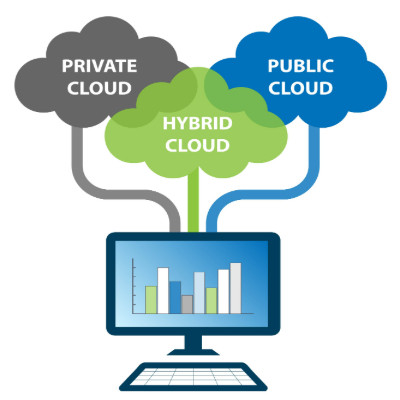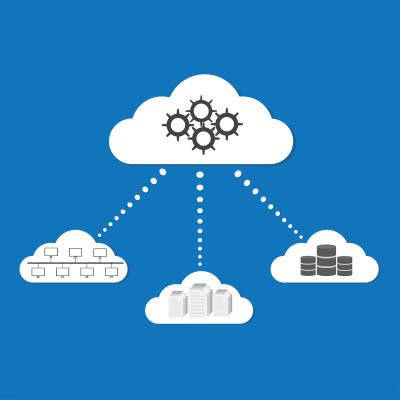We’ve all been there: frustrated by the difficulty of installing new software, dealing with licenses that suddenly expire, or constantly needing to upgrade outdated tools just to keep them running. These are classic headaches that come with buying and owning software licenses. Thankfully, there’s a much smarter way to handle things: Software as a Service, or SaaS.
BlackCSI Blog
Computers generate heat as they work, which is why laptops and desktops have fans and massive cloud computing server farms have equally massive climate control systems. Devices of any scale need to be properly cooled to maintain their functionality.
The problem is that we have numerous cloud-based resources available, and the cooling needs we’ve created have led to significant environmental and financial requirements.
How much does your business currently rely on the cloud? There are loads of ways to use it, but the best way is to find what works for your business, then double down on it according to your company’s specific needs. We’re looking at how the type of cloud can impact the way your business uses this flexible asset.
File sharing is a significant part of communication today. Whether trying to send a meme to your friends or sharing a video that won’t send, it can be frustrating when sharing your file doesn’t work. In the business world, though, ineffective file sharing can be more than just an inconvenience—it can lead to costly miscommunication. Let’s explore two methods seen in small business file sharing and how they benefit your organization.
Cloud computing is one of the most powerful technologies that has emerged over the past few decades. It has shifted how individuals and companies access resources, manage data, and store information. With the opportunities to scale online vastly expanding, businesses that want to make the most of their technology can turn to the cloud to save money and improve operations.
Cloud computing has allowed businesses to scale unlike any time before, all without breaking the budget. One such cloud provider is Amazon, and its Amazon Web Services platform allows businesses to manage their cloud computing needs. Today, we’re exploring some of the ways that AWS aids businesses with varied cloud computing needs.
Businesses have done incredible things with the cloud, regardless of their chosen industries, sizes, and scopes. In particular, they have innovated to create opportunities for scaling growth and operations. How can your organization do the same? We want to help you implement a cloud solution that addresses all of your pain points. To do this, you can start by learning more about the differences between the public, private, and hybrid cloud solutions available to you.
The cloud gives businesses more opportunities than ever to change operations for the better, but a poorly configured cloud could create more problems than it solves—including the potential for a security breach! Here are some of the most important reasons why you must configure your cloud solutions properly.
The cloud is a remarkable innovation that can enable businesses of all industries and sizes to revolutionize their operations. Have you considered the cloud for some of your business’ infrastructure? If not, you could be missing out on serious operational benefits that could push your company even further. Here are four of the best benefits of cloud computing that we can think of for a modern business.
Many companies, individuals, and organizations have sought to get the most value out of cloud computing, making it an industry that also requires a certain level of regulation. With its increasing integration into our daily lives, it’s no small wonder that there is a greater effort to control certain aspects of it. Here is what you can expect from cloud regulation in the near future.
The cloud has become a hugely popular resource for businesses of all sizes to lean on for a multitude of needs, many using it for some form of data storage. While using the cloud for this means, however, it is wise for you to do everything available to secure the data you’ve stored there. Let’s go over a few things that we recommend you do to help protect your data.
If you have the money, purchasing your own computing infrastructure isn’t an issue. Unfortunately, these systems cost tens of thousands of dollars and that is before you start compiling workstations. This week, we’d like to discuss the pros and cons of incorporating some cloud computing resources into your network infrastructure and if they can save you money.
Let’s face it… “government” and “innovation” aren’t usually associated with one another. Despite the finances that these organizations have, these funds are generally spoken for (on top of not always being used as efficiently as they could be). However, some government operations have started embracing cloud services, which has led to benefits for their entire communities.
How often do you look at your email solution and think, “Wow, managing this thing takes up so much of our time. What would it be like to take that time and apply it elsewhere?” Today, businesses have all kinds of options for managing their email communications, one of which is email hosting provided through a managed service provider.
While we're big proponents of cloud services, including those used for data storage, it is important to point out that it isn't just a matter of having a cloud. Whether you're using your cloud storage as your business' primary data storage or simply using it as a backup, part of your considerations needs to be whether or not your cloud storage remains secure.




















